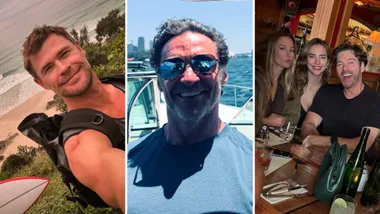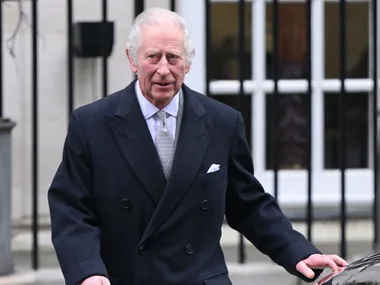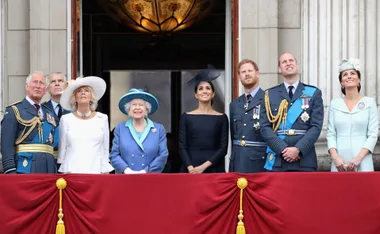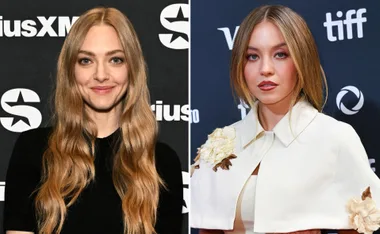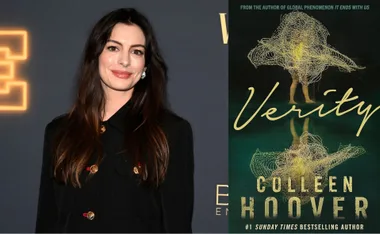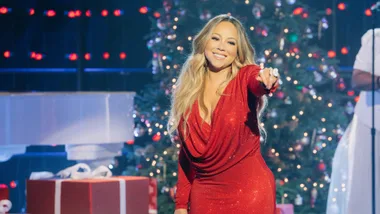Q & A with Ann Packer, author of The Dive From Clausen’s Pier (Piatkus, $29.95), which has been selected as The AWW Great Read in the October issue. (Turn to the magazine for a discount coupon and save heaps on the Great Read and other books reviewed in The Weekly).
The Dive From Clausen’s Pier is the story of a young woman who is torn between living her own life and looking after her childhood sweetheart, after he is hurt in an accident. Eventually, she flees to New York where she starts anew, but her conscience and the judgement of family and friends are ever present.
Q Ann, congratulations on your book – I loved it, put my life on hold for two days to finish it.
A Thank you, I’m so glad.
Q Your book took 10 years to write, why so long?
A It was not a matter of putting it aside for long periods. It was a matter of revising and revising and revising. In the course of those 10 years, I rewrote the book nine separate times. The interesting thing is that when I first started writing it I was writing it in the third person. I did four drafts like that in the first five or six years. Then I finally thought I should do it with the main character, Carrie, telling her own story and I tried writing it in the first person. Boy, that made all the difference.
Q Were you confident when you presented the finished manuscript?
A Not really, no. I was hopeful and it took me a long time to find an agent who wanted to represent it. And then, once I did, she found a publisher for it in a week.
Q Is it difficult to get that first manuscript read if you don’t have a high profile?
A Oh, it is. This is not my first book. I wrote a collection of short stories that were published about eight years ago.
Q Did you have a big celebration when they said, ‘Yes, we love it’.
A Oh sure, I was thrilled.
Q Were you prepared for the fuss your book would create?
A No. When the early reviews came through I thought this could go pretty well, then suddenly it just took off very positively and it was everywhere. I think the moment that really counted was when The New York Times Book review put it on the cover and then I went into another dimension. I was over the moon. I said to myself, ‘Ooh, this was never supposed to happen!’
Q Did your difficult childhood (paralysed after a series of strokes, Ann’s father committed suicide), enhance your feelings of pleasure at this singular success?
A I think so. It had a particular quality to it because of the events of my childhood. I kind of made certain assumptions about what could happen in my life and it was very nice to discover that I was wrong. I had assumed wrongly what could and couldn’t happen. What I’m saying is that when you’ve had a difficult childhood, unconsciously, you think that’s what life is like. It was kind of a nice discovery that life wasn’t like that.
Q Do you have brothers and sisters?
A I have one brother and he’s also a writer. He’s published four books, two non-fiction, two fiction. Q A lot of people with difficult lives see it as an impediment to achievement. What you’ve done is inspiring, it says anything’s possible.
A I suppose it does. I’ve had many privileges. Essentially, my background is one of a lot of privileges, but some emotional difficulties. There are all kinds of different ways to overcome something, trauma, illness, so many different possibilities.
Q The book reminds you of how vulnerable we are and yet we keep on living as if we’re not.
A If you allowed yourself to think about how vulnerable you actually are, if you lived with that knowledge all the time, you’d never be able to stand it. You’d really go crazy. It’s self-protective not to dwell on what can happen. If you went the other way you’d be completely helpless, totally paranoid.
Q Knowing how things can suddenly go wrong, do you live your life to the max, appreciating every day?
A No, I don’t think so. I’m subject to forgetting that kind of thing. I’m capable of falling into worry or despair as much as anyone else, even more, perhaps. I think it’s a struggle for me to be hopeful.
Q What did your father do for a living?
A He was a Professor of Law at Stanford University.
Q The ending is a little bit open ended – any thoughts about writing a sequel?
A No, I really haven’t. I am writing a second book, but it’s not a sequel. I feel like I’ve done that story. I feel satisfied with where I left off.
Q Working title for the new book?
A No, It’s very early.
Q Have you had other jobs as well as writing?
A I have taught writing here and there. I’ve worked in publishing. When I first got out of college, I had a job working in publishing for about five years, before I went to graduate school.
Q What did you do?
A I was actually a sort of bunny – a paperback blurb writer. I wrote the copy on the back of paperbacks.
Q That would have honed some of your writing skills?
A It did and you know what else? It was a great thing for someone who wanted to be a writer, because I learned a lot about the business. And the illusions that are particular to it. I did that for five years, then I went to the Iowa Writer’s Workshop.
Q You also lived in France for a year.
A When I first started writing the novel I went there, in the autumn of 1990.I had a grant and went and lived there for a year, near Nice in the south.
Q In a lovely stone cottage or an apartment?
A Somewhere in between, it was part of a not very lovely villa.
Q You chose France for a particular reason?
A We had gone to France on our honeymoon and we had always wanted to go back.
Q How long have you been married?
A Thirteen years.
Q What is your husband’s occupation?
A John is an architect.
Q A theme in your book was how to stay true to yourself and yet be loyal to the people you love, and I thought as the mother of two children, you must experience that problem on an almost daily basis.
A I think so, for this seems to have hit a nerve with people. The book looks at conflict between loyalty and being true to yourself on a kind of grand scale. What do you do? I think that we all face that conflict on a daily basis, from putting the newspaper down and listening to the children, or I need the break for 10 minutes. It matters because I really need it. It’s not an easy call to make – it’s so easy to slip over from ‘I need this 10 minutes’ to being selfish. How do you decide where one starts and the other ends? But on the other side of that is the ‘I have to do this for so and so’, until you’re ragged and not doing anyone any good.
Q When you’re concentrating on writing, do you have set hours or do you write in bursts?
A I do it when I can. I work around my children’s schedule. The hard thing for me is to say no to people. Asking me to help in the classroom. Or friends saying, ‘Let’s have lunch’. It’s hard to say, ‘No, I’m not going to do that I need to write’. But somehow I balance it all, I put it all together in a way that works. I fit in what I can. Some weeks there’s no writing and some weeks are full of writing.
Q I was reading recently that family is the enemy of art.
A In a way, one aspect drags you away from your work, the other enriches it, absolutely. I am the writer that I am, who is also the mother and the wife and the friend. It is an interesting way of life, because no one thing is separate from another.
Q Are you writing full time now?
A Yes, in terms of my work life, I have been writing for the last few years. And the question is, whether it becomes full-time. I have to grab as much time as I can.
Q Is your husband encouraging and supportive, or does he get sick of it?
A No, he’s been encouraging and supportive. I have a wonderful group of readers, a writer’s group who have read the book several times and they have been of great help to me. They’ve been instrumental.
Q Have you sold the movie rights to the book?
A We’re working on it. I have an agent in Hollywood.
Q Where were you born and raised?
A In Stanford, California.
Q Describe where you live?
A I live in a house in a suburb about half-an-hour from San Francisco, about half-an-hour from the Pacific Ocean.
Q Do you have pets?
A No.
Q With children, how did you manage to escape that?
A I just said no.

